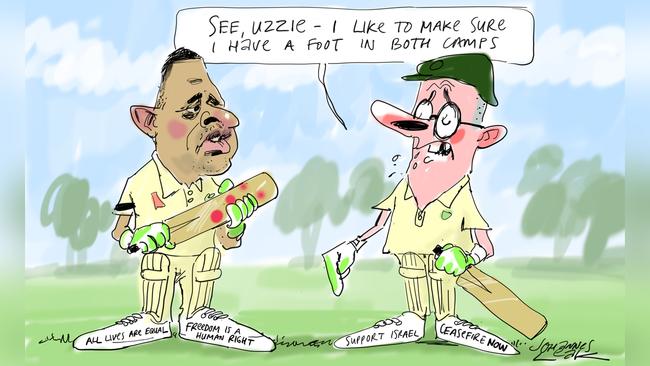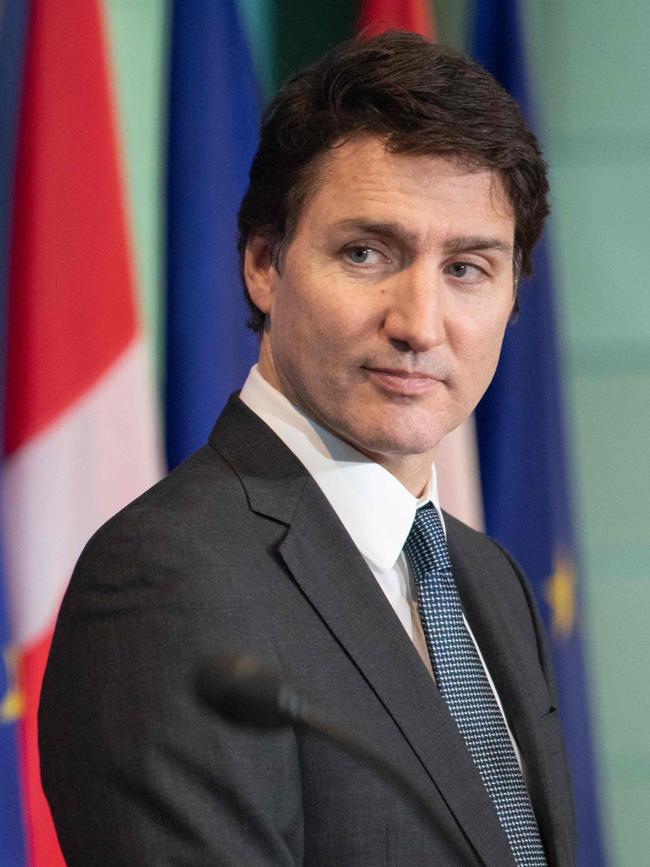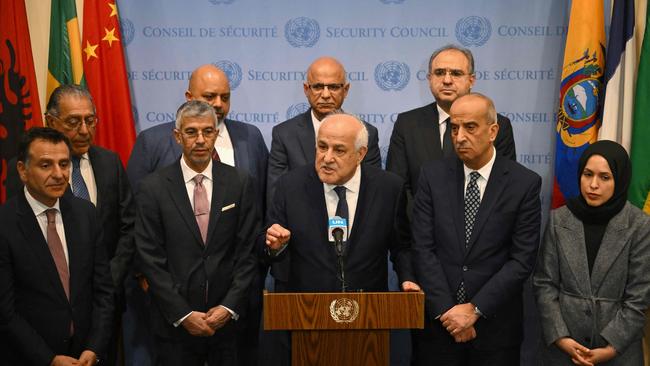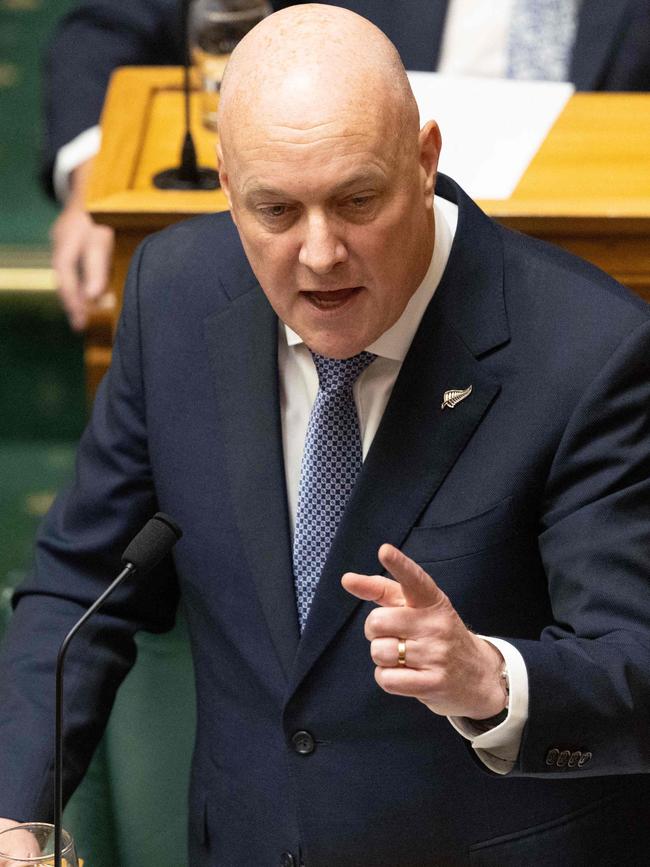
In just 429 words we have an exercise in moral posturing and magical thinking. A fantasy behind which the leaders of three of the world’s oldest and safest democracies call for “a just and enduring peace in the form of a two-state solution”, knowing that none of them will ever be called to do anything of substance to end the war in Gaza.
There was a time when governments in Australia, Canada and New Zealand prided themselves that their international pronouncements carried weight. Statements had the burden of offering truthful assessments, realisable strategies and moral gravitas.
No more. This joint statement is a dispiriting concoction of platitudes that cannot be implemented and calls for action that achieve nothing, other than enabling the prime ministers to seem broadly empathetic and studiously neutral over what is, in reality, an existential fight for the future of democratic Israel.
Consider some of the joint statement’s demands: “Hamas must release all hostages, stop using Palestinian civilians as human shields and lay down its arms.”
This is not going to happen. Key Hamas leaders are living in safety in Qatar. Their extremist ideology is such that many of their lieutenants in Gaza would rather die than surrender. I doubt Anthony Albanese and his colleagues expect Hamas to stop fighting. They know this call has no chance of being acted on.
The statement goes on: “There is no role for Hamas in the future governance of Gaza.” It’s good to have that as a clear position but, absent a unilateral surrender, the only way this outcome will be delivered is by force of Israeli arms.

At this point the joint statement departs from any connection to reality. The prime ministers say that in defending itself Israel must protect civilians and civilian infrastructure, “safe and unimpeded humanitarian access (to Gaza) must be increased and sustained”, there must be no “use of siege or blockade” but “Gaza must no longer be used as a platform for terrorism”.
For the thousandth time we are told that “Israel must respect international humanitarian law”. Are the prime ministers saying that Israel is not doing this? Do they reject the strenuous efforts Israel has made to explain how it is trying to follow the laws of armed conflict? If so, what evidence does Australia, Canada and New Zealand have to make this charge?
In making the case that Israel must wage war without harm, the prime ministers are setting benchmarks for military behaviour that our own armed forces would have failed in Iraq, Afghanistan and Syria.
Iraqi forces (with Australian training) could not have liberated Mosul from ISIS in 2017 under such conditions.
The joint statement says “the price of defeating Hamas cannot be the continuous suffering of all Palestinian civilians”. The statement could make one conclude that this suffering was Israel’s fault, because there is no acknowledgment that the essence of Hamas’s strategy is to save its political skin by hiding behind its own women and children.
Perhaps the statement’s worst lapse is the failure to condemn Iran – the strategic enabler of Hamas, Hezbollah, the Houthis in Yemen and other Islamist extremist groups, all in Tehran’s pay.

The statement says: “We remain concerned about the impact of the conflict spilling across the region and urge all governments in the region to work towards containing the conflict.”
But there is no acknowledgment of Iran’s determination to dominate the Middle East; to ignite the Arab street against regimes from Saudi Arabia to Egypt and Jordan.
And there is no acknowledgment that Iran has the backing of Moscow and Beijing, both happy to see Israel suffer and to see Israel’s key backer, the United States, face yet another challenge to its global interests.
The joint statements ends: “We condemn rising anti-Semitism, Islamophobia and anti-Arab sentiment in our countries and around the world, and remain firmly committed to combating prejudice, hatred and violent extremism.”
I see a global rise of anti-Semitism, driven by deepening intolerance on the progressive left. In Australia I see little evidence of Islamophobia, let alone anti-Arab sentiment. State police forces look the other way at weekly protests where anti-Jewish and anti-Israel slogans are chanted. Jews and their supporters have been told to stay at home while our streets are given over to extremists.

In some political circles it is argued that the war in Gaza is difficult for Labor because it forces a difficult balance of supporting Israel in a fight for its political existence against the apparently inexorable electoral mathematics of whom Australian Muslims vote for.
The outcome is a government incapable of thinking strategically about how this war really could be brought to an end. With or without our support, Israel will do its best to end Hamas as a threat to its survival.
That will be a deeply imperfect outcome because all military conflict is bloody, costly and horrible. Australia does nothing to help develop a “sustainable ceasefire” – whatever that glib phrase means – by participating in such a vacuous exercise in virtue-signalling from the leaders of three countries with little directly at stake other than the intellectual credibility of their foreign policy.







The biggest flaw in the joint statement on Gaza from the prime ministers of Australia, Canada and New Zealand is that there is not a single sentence offering practical advice about how Israel might exercise its “right to defend itself”.